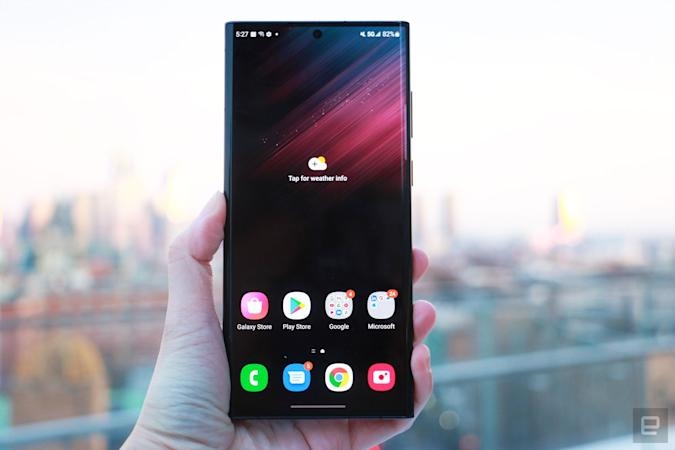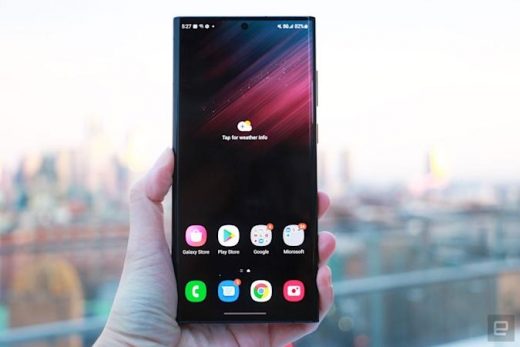Samsung adds performance throttling controls to the Galaxy S22
Samsung will add phone performance throttling controls through an update
This follows a backlash over reduced speed for thousands of apps.


Samsung will at least partly address complaints that it’s throttling the performance of apps on some Galaxy phones. As The Verge reports, the company has promised an update to its Game Optimizing Service to give users more control over throttling. In a statement to Engadget, Samsung said the option was coming at an unspecified point in the future in response to both feedback and “careful consideration.” You can read the full statement at the end of this article.
However, Samsung disputed claims GOS was throttling as many as 10,000 apps across numerous categories. The service “does not manage” apps beyond games, the company said. Users have accused Samsung of throttling the performance of non-gaming software like Netflix and TikTok while disabling the restrictions for benchmarks like 3DMark and GeekBench, skewing expectations for real-world speed.
GOS is now known to be present on the Galaxy S22 series. While the exact range of phones with GOS isn’t clear, the software is known to exist on older phones like the Galaxy S21 lineup and S20 FE.
Samsung isn’t alone. In 2021, OnePlus admitted that it throttled the OnePlus 9 while popular apps were in use. This was ostensibly meant to preserve battery life, but didn’t include benchmarks. Huawei, Oppo and other phone makers have been caught cheating on benchmarks in the past, but those methods relied on ramping up performance when a test app was in use, not slowing down for other apps.
It’s difficult for phone vendors to completely avoid throttling. Chips like the Galaxy S22’s Snapdragon 8 Gen 1 and Exynos 2200 can run hot, and Samsung even introduced vapor chamber cooling to the S22 to manage that heat. As Apple learned years ago, though, at least some users want more control and transparency for throttling — they’re willing to sacrifice battery life and heat to see devices reach their full potential.
“Our priority is to deliver the best mobile experience for consumers. The Game Optimizing Service (GOS) has been designed to help game apps achieve a great performance while managing device temperature effectively. GOS does not manage the performance of non-gaming apps. We value the feedback we receive about our products and after careful consideration, we plan to roll out a software update soon so users can control the performance while running game apps.”
(41)


